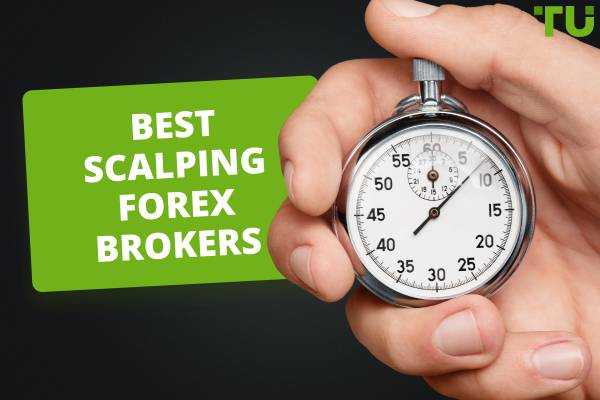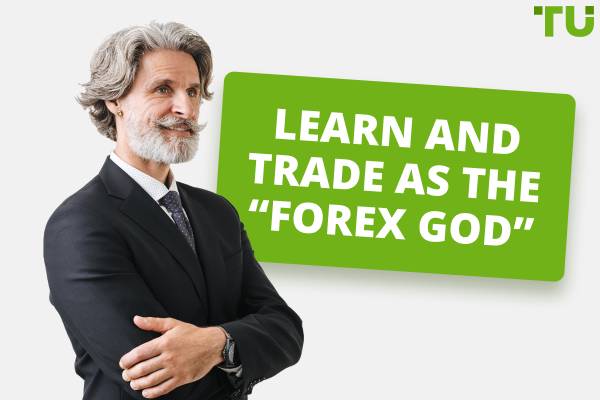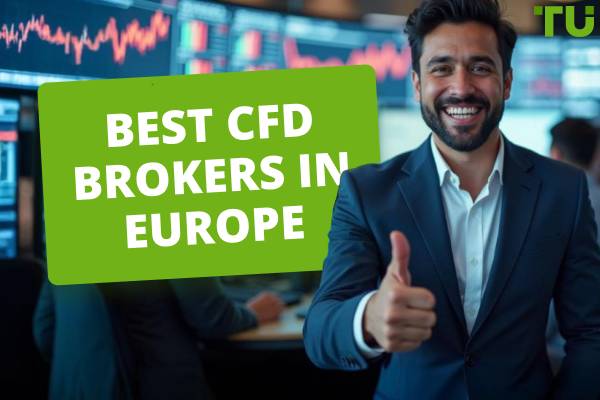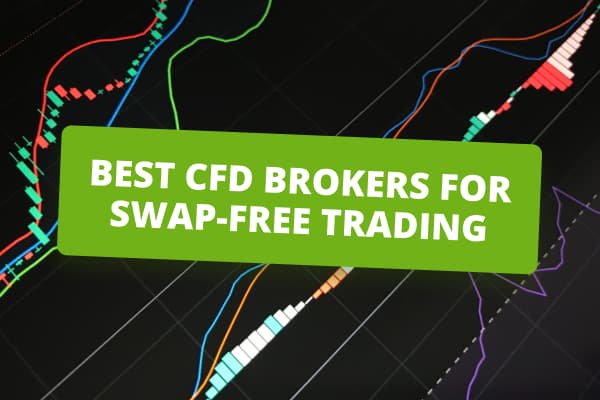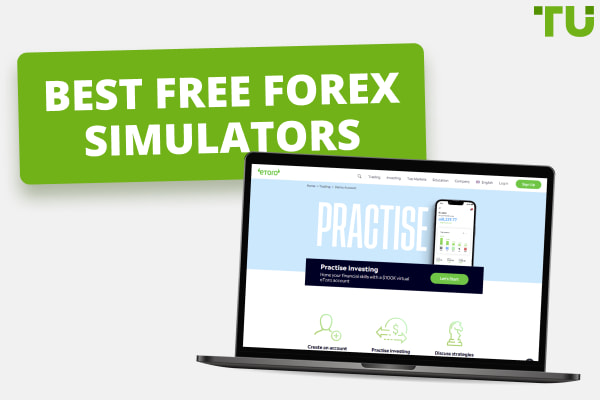Best Forex Brokers for 2025 — the Reliable & Licensed
Editorial Note: While we adhere to strict Editorial Integrity, this post may contain references to products from our partners. Here's an explanation for How We Make Money. None of the data and information on this webpage constitutes investment advice according to our Disclaimer.
Selecting the right Forex broker is one of the most important and challenging steps toward success in the Forex market.
It often requires hours, sometimes even days, of comparing companies, researching services, and reading user reviews. But here is the good news: the Traders Union team has already done that work for you.
Our platform streamlines the broker selection process, saving you time, reducing frustration, and condensing complex market research into just a few minutes with our trusted broker ratings.
It is also essential to choose a broker that accepts clients from your country. This ensures you can trade legally and that the broker complies with local regulations. Proper licensing protects your funds, supports fair trading practices, and provides legal recourse in the event of a dispute.
6 Best Forex Brokers for 2025
Your location is United States
We’ve selected Top Brokers providing services in your country. If you would like to learn about the best brokers in a different region, please use the “Find my broker” service.
There is a high level of risk involved when trading leveraged products such as Forex/CFDs. Between 65% and 82% of retail investor accounts lose money when trading CFDs. You should consider whether you understand how CFDs work and whether you can afford to take the high risk of losing your money.
Overview of the Best Forex Brokers
This comparison table allows you to evaluate top broker companies at a glance by displaying their key information side by side. It highlights the most important categories to consider when choosing a broker that aligns with your trading goals.
Main features the best forex brokers in July 2025
| Plus500 | Pepperstone | OANDA | FOREX.com | Interactive Brokers | |
|---|---|---|---|---|---|
| Trading platform |
Mobile, Web, Desktop | MT4, MobileTrading, WebTrader, cTrader, MT5, TradingView | WebTrader, MetaTrader4, Mobile platforms, MetaTrader5 | FOREX.com, MT4, MT5 | Trader Workstation, IBKR Mobile, APIs |
| Min deposit | $100 | $1 | No | $1000 | No |
| Leverage |
From 1:1 to 1:300 |
From 1:1 to 1:400 |
From 1:1 to 1:200 |
From 1:1 to 1:400 |
From 1:1 to 1:50 |
| Trust management | No | No | No | No | No |
| Accrual of % on the balance |
No |
No |
No |
No |
No |
| Spread | From 0.5 points | From 0 points | From 0 points | From 0.2 points | From 0 points |
| Level of margin call / stop out |
100% / 30% | 90% / 20% | No | No | No |
| Order Execution | Market Execution | Instant Execution | Market Execution | Market Execution, Instant Execution | Market Execution |
| No deposit bonus | No | No | No | No | No |
If you are not looking for highly specific features, you can confidently choose from our top-rated brokers.
The leading brokers on the Traders Union list are known for their strong client relationships and strict adherence to professional standards. Click the "Profile" button next to any broker on our list to access comprehensive, unbiased information. We evaluate each broker using over 100 criteria to ensure accuracy. You can also read dozens of verified trader reviews to help guide your decision.
Forex Brokers Rating for 2025
The Forex broker rating was developed using proprietary data from Traders Union members, which provides access to a large-scale, real-time view of trader behavior and performance. No other organization in the Forex market has the capability to simultaneously analyze data from hundreds of thousands of active traders. This makes the Traders Union broker rating system one of the most objective and accurate available today.
Prefer watching instead of reading? You can view the video summary of this article below.
All the details are provided below.
How to choose a Forex broker?
To find the best Forex broker for your needs, consider the following key factors:
-
The broker's footprint in the Forex market
The longer a brokerage firm has been in the market, the more client reviews will be available. Established companies typically value their reputation and are more likely to fulfill obligations responsibly.
-
Licenses and regulation
Only trustworthy brokers are licensed and regulated by independent financial authorities. Maintaining a license is costly, which discourages less reliable firms. The Traders Union has prepared a list of the top 100 regulated Forex brokers worldwide to help you choose a dependable option.
-
Country of registration and physical presence
Representative and broker offices play an important role in assessing a broker’s reliability. A broad network of offices reflects the company’s scale and commitment to the brokerage business. However, an increasing number of brokers now prioritize online relationships with their clients.
-
Trading conditions
Each brokerage firm offers a range of competitive trading conditions, including low spreads, a wide selection of instruments, added services, and bonuses. The combination of benefits offered is an important factor in the selection process.
-
Customer support and service quality
The speed and quality of a broker’s customer support are critical indicators of reliability. Leading firms respond promptly to client inquiries and work to resolve issues efficiently and professionally.
-
Trader reviews of Forex brokers
Clients with firsthand experience offer valuable insights into a broker’s reliability and professionalism. At Traders Union, we review and verify each testimonial before including it in our ratings.
-
Company’s position in the Traders Union’s Forex ratings
This is a key factor when selecting a broker, as each position in the Traders Union rating reflects a comprehensive audit based on more than 100 objective criteria compared against other firms in the industry.
How much money do I need to start trading Forex?
The good news is that entering the Forex market doesn’t require a large upfront investment. Many brokers offer a minimum deposit as low as $1, making it accessible to beginners. With a cent account, a modest $10 minimum deposit can stretch further, especially when combined with high leverage.
How much should you actually invest?
It’s important to look beyond the low entry barriers. Trading involves risk, and proper risk management is essential for long-term success. A common rule of thumb is to risk no more than 1 to 2% of your total account value on a single trade. For example, if your account balance is $100, your risk per trade should be limited to around $1 to $2.
Day traders, whose fast-paced style requires a cushion to accommodate market fluctuations, should consider starting with at least a few hundred dollars. In contrast, swing traders, who may hold positions for several days or weeks, often need a starting balance in the thousands.
Long-term investors who plan to buy and hold securities over extended periods should determine their initial investment based on the price of selected stocks or ETFs.
The bottom line for any trading style is to invest only what you can afford to lose. Newer traders should begin with smaller amounts, focus on learning proper trading techniques, and gradually grow their account as they gain experience and confidence. It’s also important to keep in mind that high leverage is a powerful tool that should be used cautiously, as it can amplify both profits and losses.
What Forex broker should I choose for my needs?
For beginners
Before diving into Forex trading with real capital, hone your skills and test your strategies risk-free with a demo account. Alternatively, consider cent accounts that offer very small trade sizes to minimize potential losses while learning. Copy trading, which mirrors the moves of experienced traders, can also be a helpful starting point. However, keep in mind that it does not guarantee success.
For day traders and scalpers
Day traders and scalpers should consider ECN/Raw spread accounts that offer tight spreads and direct market access, enabling faster executions and reduced slippage. Low trading fees are critical for high-frequency strategies, typically defined as spreads below one pip on major currency pairs like EUR/USD and commission fees ranging from $2 to $5 per standard lot traded.
For algorithmic traders
Algorithmic traders need brokers that support such as MT4/MT5 with API integration and Expert Advisors (EAs). It is important to choose brokers that provide robust resources for algo trading, including educational content, dedicated customer support, and backtesting tools. Opt for brokers with competitive commissions and tight spreads, and prioritize regulation, security, and responsive customer service.
For advanced investors
Advanced Forex traders should prioritize brokers that support automated trading strategies, complex order types, and sophisticated charting tools offering ECN/STP execution with direct market access, lower commissions, and access to leverage at favorable margin rates. It would also be essential to select brokers with comprehensive market analysis tools, educational resources, and dedicated support for advanced traders.
What are the typical Forex trading costs?
Forex traders need to be mindful of various expenses that can impact their bottom line. Here is a breakdown of the most common costs to consider:
Spreads: This is the difference between the buy (bid) and sell (ask) price of a currency pair. Tighter spreads reduce trading costs. On an ECN account, typical spreads range from 0.1 to 0.5 pips, while standard accounts generally have spreads between 0.5 and 2 pips.
Commissions: Some brokers apply fixed or variable fees per trade in addition to spreads. These costs vary based on account type and broker pricing models.
Per-lot fees: ECN (Electronic Communication Network) and STP (Straight Through Processing) accounts often charge a per-lot fee instead of spreads. While these fees are typically lower than equivalent spread costs, they can accumulate with larger trade sizes. The average ECN fee ranges from $2 to $5 per standard Forex lot.
Non-trading fees: These can include rollover fees or interest charged for holding leveraged positions overnight, inactivity fees for accounts with low trading activity to encourage participation, and conversion fees to cover the costs of depositing or withdrawing funds in a currency different from your account base currency.
Comparing these costs across brokers is essential for finding the most cost-effective option for your trading volume and strategy. While selecting a broker with competitive fees can help maximize potential profits, it is important to remember that trading still carries the risk of capital loss.
What are the best Forex trading platforms?
MetaTrader MT4 and MT5 are widely regarded as the best platforms for beginners. They offer intuitive interfaces, access to demo accounts, a range of educational resources, and a vast library of technical indicators and tools. These features make them an excellent starting point for learning the fundamentals of Forex trading.
CTrader is a preferred platform among algorithmic traders thanks to its support for C# programming, which enables the development of complex algorithms and trading bots. It offers efficient strategy creation and backtesting, along with smooth integration with external software and data sources. Traders with programming experience value the platform’s flexibility and performance.
For those seeking advanced charting capabilities and broader investment access, platforms like Interactive Brokers and Charles Schwab Forex provide institution-grade tools tailored for experienced traders and investors. These platforms offer robust charting systems, extensive technical indicators, in-depth research tools, and a wide range of asset classes. Active traders who handle larger volumes may also benefit from tighter spreads and improved execution conditions.
Is Forex trading risky?
Forex trading involves significant risks that every trader should understand before entering the market. These include:
Market Volatility: Currency prices can fluctuate rapidly due to economic news, political events, or market sentiment, leading to sudden and unexpected losses.
Leverage: While leverage amplifies potential profits, it also magnifies losses. A slight market movement against your position can wipe out your capital.
Liquidity Risk: Some currency pairs are less actively traded, making it difficult to buy or sell at expected prices. This can result in slippage, where trades are executed at worse prices than anticipated.
Counterparty Risk: There is always the possibility that a broker or financial institution could fail to meet its financial obligations, especially in loosely regulated markets.
Geopolitical Events: Global economic or political instability can drastically disrupt currency markets.
Understanding these risks and applying consistent, well-informed risk management strategies is essential for anyone considering trading in the Forex market.
Is Forex trading legal?
Forex trading is legal in most countries across the globe. However, regulations can vary between jurisdictions since Forex is a decentralized global market where currencies are traded without a central exchange.Most countries have regulatory authorities that oversee Forex brokers to promote fair practices and protect retail traders.
It is important to understand your country’s specific regulatory structure and choose a broker that is properly licensed. Working with a regulated broker helps ensure that you are trading within a secure and legal environment. TU assists traders looking for a broker by including the legal aspects of broker oversight in its broker rankings.Only brokers that operate legally and accept clients from your country are displayed in your regional ranking, making it easier to find a compliant and trustworthy trading partner.
How can I check if a Forex broker is regulated?
Before choosing a Forex broker, it is critical to conduct due diligence to determine the level of oversight and how well it is regulated. Follow these steps to verify a broker's legitimacy:
Identify the regulatory body: Determine the relevant regulatory body responsible for overseeing financial institutions and brokers in your country. This information is often readily available on government websites or financial authority websites. Common examples include the Financial Conduct Authority (FCA) in the UK, the Securities and Exchange Commission (SEC) in the U.S., and the Australian Securities and Investments Commission (ASIC) in Australia.
Use the broker search tool: Most regulatory bodies maintain a searchable online database listing authorized brokers within their jurisdiction. Locate the search tool on the relevant website and enter the broker's name. If they are not listed, proceed with caution.
Verify license details: Once you find the broker in the database, carefully examine their license details, such as their license number, registration date, and the type of activities they are authorized for (e.g., Forex trading, stock trading).
Check for warnings: Regulatory bodies often issue public warnings against fraudulent or unauthorized financial institutions. Search the regulator's website and other reliable sources for any warnings about the broker you're considering.
Review online feedback: While online reviews should not be solely relied upon, they can offer additional insights and potential red flags. Look for reviews on reputable financial websites and forums, keeping in mind that negative experiences might be amplified online.
Don't hesitate to contact the regulatory body directly if you have any questions or concerns about a broker not addressed through the provided information.
By following these steps, you can take significant strides towards ensuring your chosen broker operates legally and under the necessary regulatory framework, protecting your financial interests and minimizing potential risks.
How to avoid Forex scams?
Avoiding Forex scams requires vigilance and informed decision-making. Here are four key tips to help you steer clear of fraud:
Be cautious of unsolicited offers: Reputable brokers do not cold-call potential clients or pressure them to open accounts. If someone contacts you unexpectedly and promises fast, easy profits, it is likely a scam.
Verify regulatory status: Every legitimate Forex broker will be licensed and regulated by a reputable financial authority in your country. Check the broker's website for their license information and verify it with the official registry of the regulatory body.
Conduct thorough research: Read independent reviews and testimonials from verified traders. Investigate the broker’s operating history, financial standing, and any relevant media coverage. A limited online presence or a history of negative reviews should raise concerns.
Avoid brokers that promise guaranteed returns: Any claim of high, risk-free returns is a red flag. Forex trading involves risk, and no broker can eliminate it. Promises of guaranteed profits are usually signs of deception.
By following these guidelines and approaching Forex trading cautiously, you can significantly reduce your risk of falling victim to a scam. Remember, if something seems too good to be true, it probably is.
TU Expert Opinion
Contributor
Take an open-minded approach when searching for and opening a Forex brokerage account, as you may not choose the right one on your first try. Be flexible. If your initial broker falls short of expectations, consider switching to another. Larger, well-established brokers generally inspire more confidence in their operations than smaller firms. This article also outlines additional due diligence steps you can take.
While there are an estimated 7,000 Forex brokers worldwide, only a small number operate in the United States. Customer reviews and feedback found online can be a useful starting point. Personal recommendations from other traders can offer valuable insights that are not always available through public channels. You may also want to connect with local trading groups or online communities, such as those found on Meetup, where traders share their experiences and information.
Methodology for compiling our ratings of Forex brokers
We evaluate each broker using more than 100 objective criteria to calculate an overall average score that reflects all aspects of its operations. Trading volume is a key component of our analysis, supported by data from hundreds of thousands of Traders Union members. We also factor in broker reviews submitted by verified traders, which are published on our website after moderation.
Using a proprietary algorithmic matrix applied uniformly to all brokers, our system calculates each company’s position in the rating. This approach ensures our rating system remains one of the most objective and independent tools available in the Forex market.
Categories of criteria for evaluating Forex brokers
| Category Name | Number of Criteria in Category |
|---|---|
| Financial | 38 |
| Reliability | 27 |
| Security | 18 |
| Trading conditions | 15 |
| Customer support | 9 |
Learn more about the unique broker assessment methodology developed by Traders Union specialists.
-
How do I choose a Forex broker from the rating?
The broker ranked highest in the rating table is considered the most reliable and popular among traders. This ranking reflects the core goal of the assessment system, which is to help you identify the most trusted options in the market.
-
Where can I read reviews about Forex brokers from the rating?
The latest trader reviews are available on each broker’s Profile page.
-
Does leverage increase profits in Forex trading?
Leverage allows you to open larger positions with relatively small capital, which can increase profits. However, it also increases potential losses if the trade moves against you. Use leverage carefully and in line with your risk tolerance.
-
Which Forex brokers offer Islamic accounts?
Brokers such as XM and IC Markets provide Islamic accounts that do not charge swap fees.






















